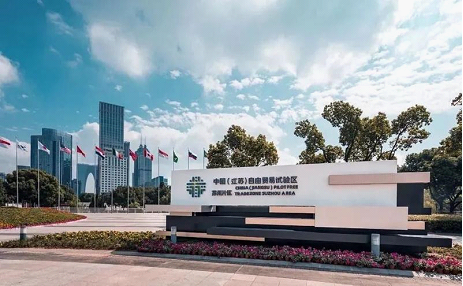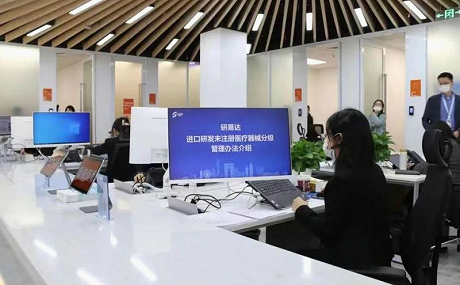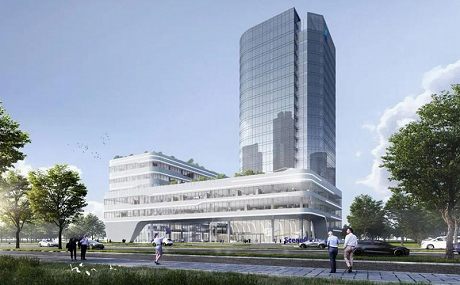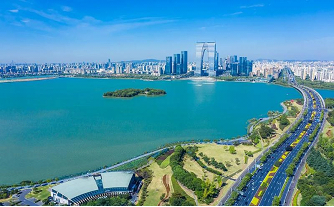SIP does its utmost to meet medical devices enterprises’ needs and alleviate burdens on them, aiming to enhance the stability and competitiveness of the whole industry chain.

Institutional innovation to alleviate burdens on enterprises

SIP Customs’ suggestion of setting a temporary tariff rate for import of special detectors for X-ray tomograph was adopted by the Customs Tariff Committee of the State Council so that importers can reduce cost by 4.5% to 3%.
The Yanyida, a set of measures for administration of import of unregistered medical devices, has been practiced in the free trade zone in SIP since 2020 to lift restrictions for enterprises to import from overseas medical devices that are not registered in the country for use in R&D activities.

Pro-business services to fuel innovation
SIP authorities offer “agent services” to provide one-on-one assistance in project initiation, land use right transfer and other aspects.

SceneRay, a medical equipment developer, is one of the beneficiaries. The company recently broke ground on a headquarters base in SIP. The project, with a total investment of RMB550 million, is expected to achieve an annual output value of RMB2 billion after it comes into operation. Related authorities launched the land supply process soon after an evaluation of the project.
In another case, Hitachi Instrument (Suzhou) Ltd received the marketing approval from Jiangsu Medical Products Administration for a fully automatic biochemical analyser within two months thanks to the help of SIP Market Supervision Bureau and Medical Products Administration Center.

SIP’s efforts in fostering a world-leading medical device industry chain have paid off. Suzhou’s biomedicine and high-end medical equipment clusters with SIP as the core have been declared by the Ministry of Industry and Information Technology of China as advanced manufacturing clusters.







